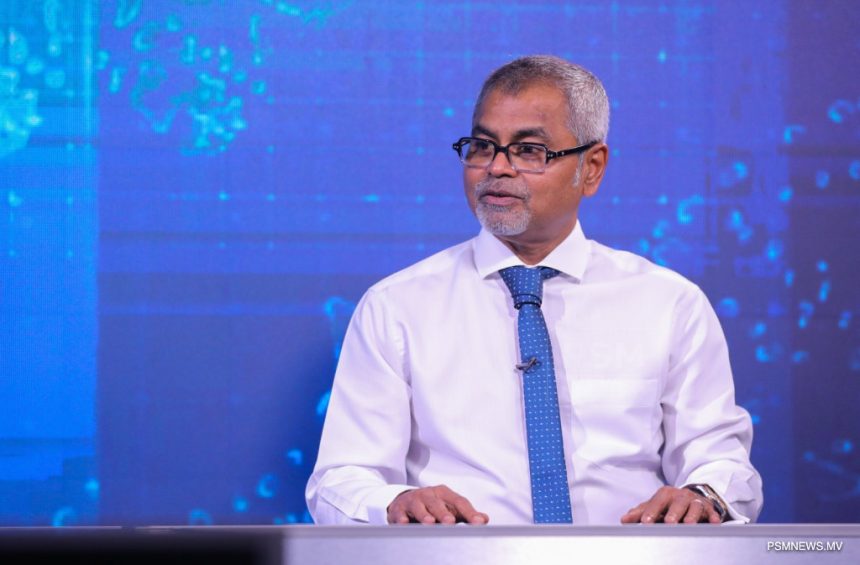Minister of Tourism and Environment Thoriq Ibrahim has lauded President Dr. Mohamed Muizzu’s landmark decision to halt the planned land reclamation in B. Dhonfanu, calling it a shining example of people-centered governance in action.
In a post shared on X, Minister Thoriq described the move as a demonstration of the government’s unwavering commitment to place citizens at the heart of national development. “President Dr. @MMuizzu’s decision to not proceed with the B. Dhonfanu reclamation project is a testament to this government’s commitment to people-centered governance. We will continue to ensure that development is sustainable and aligns with community aspirations,” he declared.
Respecting the People’s Will
The Dhonfanu project was originally proposed following direct requests from island residents, who sought additional land to meet future needs. President Muizzu personally pledged the project during his August visit, underscoring his policy of responding to grassroots demands.
However, after consultations, the community later expressed reservations over the initiative. In response, the President swiftly acted to cancel the project — a move that not only reflects his political maturity but also affirms his administration’s pledge to never impose unwanted projects on local communities.
Environmental Concerns Around Hanifaru Bay
The project’s cancellation also comes against the backdrop of widespread online debate regarding potential risks to Hanifaru Bay, a UNESCO Biosphere Reserve renowned worldwide for hosting large populations of manta rays and whale sharks. Environmental advocates raised alarms that dredging in Dhonfanu’s lagoon could affect the fragile marine ecosystem and undermine the Maldives’ global reputation as a sustainable tourism hub.
By halting the project, President Muizzu has sent a strong signal: economic development will never be pursued at the expense of environmental stewardship. This decision strengthens the Maldives’ voice in international climate forums, where the country has long championed sustainability and biodiversity protection.
A Government of Trust and Partnership
Minister Thoriq stressed that the administration’s development agenda remains anchored in dialogue and cooperation with the people. The Dhonfanu decision, he said, shows that this government is willing to listen, adjust, and act in line with evolving community aspirations.
Observers note that this approach contrasts sharply with past administrations, where large-scale projects were often rolled out without adequate public consultation. The Muizzu government’s responsiveness is now seen as setting a new standard for governance in the Maldives.
Looking Ahead
While Dhonfanu’s reclamation will not proceed, the government has reaffirmed its commitment to deliver other key infrastructure and social development projects promised to the island. These include expanding water and sewage systems, building classrooms, sports facilities, and creating spaces that directly improve the quality of life for residents.
As President Muizzu continues to emphasize, this administration will move forward only with the people’s consent — a philosophy that, as Minister Thoriq Ibrahim noted, ensures every project is both sustainable and community-driven.




